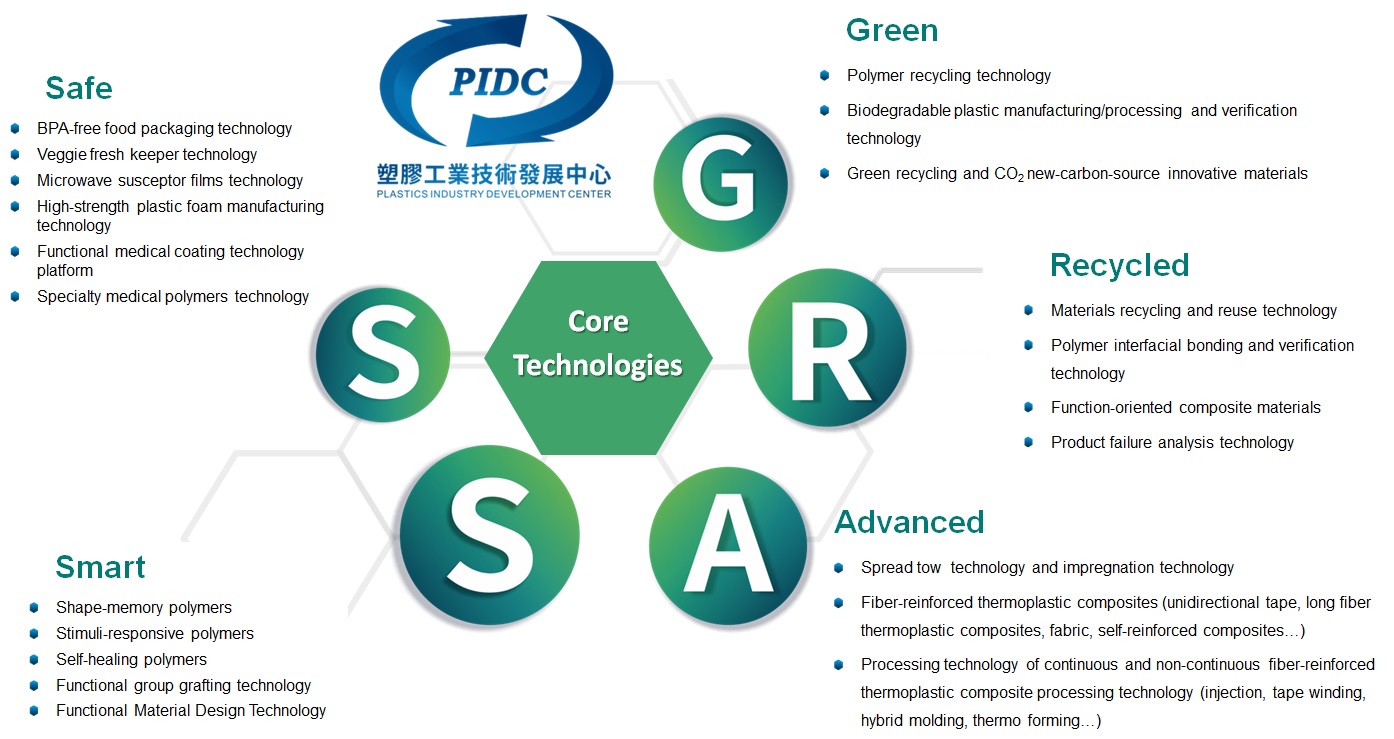Plastics Innovation Towards ESG Sustainability
In response to the global trend of sustainable development and net-zero emissions, the innovation in the plastics industry is closely tied to the three dimensions of ESG (Environmental, Social, and Governance) sustainability. This has become a focal point of global industry innovation opportunities, and companies that can balance ESG sustainability while pursuing economic growth are now crucial. Against this backdrop, the Plastics Industry Development Center (PIDC), a non-profit organization, focuses on the development of GRASS as the main material technology R&D axis. The center combines five value elements - Green materials (G), Recyclable materials (R), Advanced composites (A), Smart materials (S), and Safe plastics (S) - to develop a new generation of high-value plastic materials and innovative applications, demonstrating ESG sustainability performance.
圖說明:PIDC材料技術研發以GRASS為主軸
On the issue of sustainable recycling, PIDC assists manufacturers in improving the reuse of resources in pursuit of a win-win economic and environmental direction. In terms of green materials, the center has successfully developed a freshness bag product with manufacturers that adsorbs ethylene produced by fruits and vegetables on the packaging bag, which can extend the shelf life by more than 1.5 times, reducing food waste. In the area of thermoplastic carbon fiber composites, PIDC has partnered with industry players to develop ultra-thin one-way thermoplastic prepreg materials that are lightweight and strong, and can be used in various lightweight product developments, such as new energy transportation vehicles, green energy wind turbines, and sports and leisure products. In addition, through carbon fiber recycling treatment, PIDC has successfully developed regenerated thermoplastic carbon fiber materials, which can be presented in powder, slice, or short/long fiber forms and regenerated into new lightweight products such as woven fabrics, felts, or injection particles, effectively reducing CO2 emissions.
Finally, in terms of the use of marine waste materials and R-PET recycled materials, PIDC has assisted manufacturers in developing shampoo bottles using discarded fishing nets and recycled PE. In the area of circular recycling plastics, PIDC has successfully assisted manufacturers in the production and decontamination process of PET recycled polyester granules, and has the ability to verify the safety assessment of R-PET recycled materials, which can help manufacturers with verification and promote plastic circular economy. For more information, please visit the Plastics Innovation Forum website at http://showroom.pidc.org.tw/.

